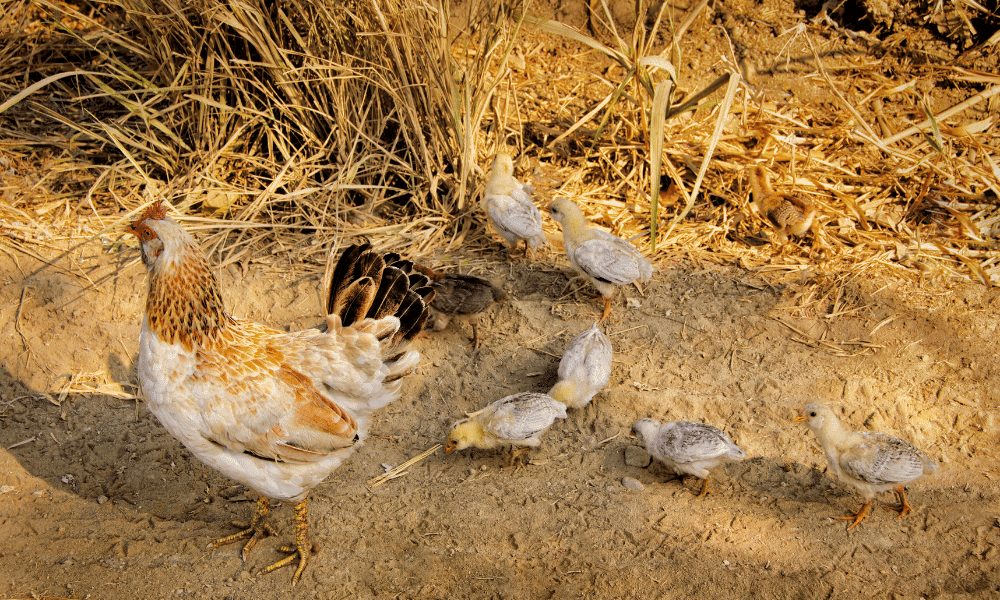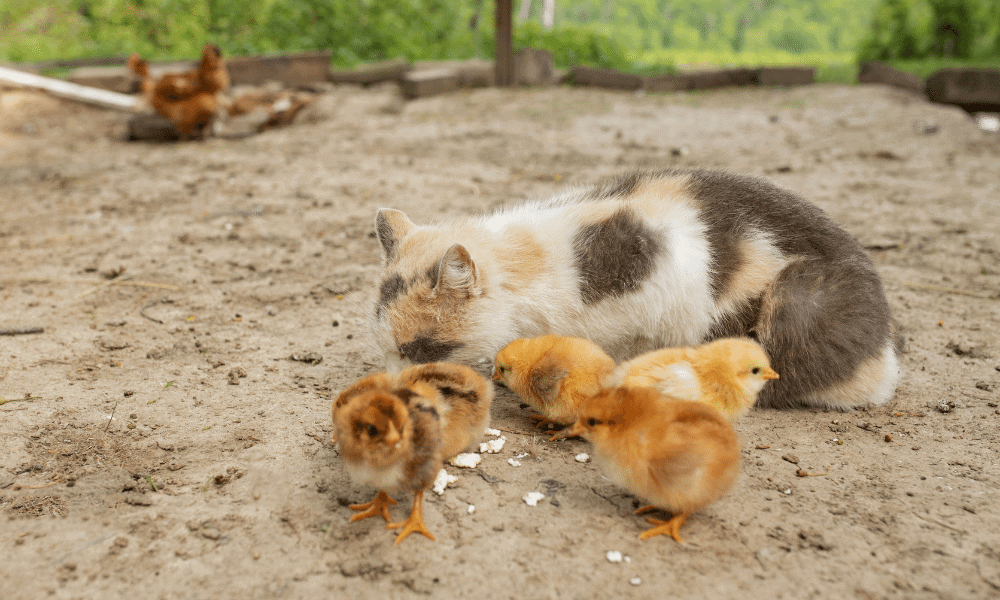Imprinting is a fascinating phenomenon.
It’s commonly known that ducklings imprint on the first thing they see when they hatch, making for some very adorable relationships.
But, is it true that chickens can imprint on humans in the same way?
If you’re hatching your own baby chicks, into backyard farming, or simply curious, here’s everything you need to know about imprinting in chickens.
What Is Imprinting?
First, let’s define imprinting. This peculiar phenomenon refers to a learning and memorizing process that occurs in baby hatchlings during their first few hours of birth.
Imprinting is when the first moving thing baby birds see—whether it’s their mother, human, or an object—is irreversibly “imprinted” in their subconscious mind. It’s an inherent instinct most birds have that helps them to stay under their guardian’s protection and learn essential survival skills.
Most commonly this fascinating behavior is observed in baby birds from ducks, geese, or turkeys.
Do Chickens Imprint On Their Mothers?

Due to their domestic nature, chickens absolutely do imprint on the first moving, lively animal they come into contact with. At a young age, baby chickens are very vulnerable, hardly being able to see or move. So, it’s natural they will want to feel comfort and security with the closest thing to them.
In a normal circumstance, this imprinting behavior will be directed toward their mother hen who has hatched them. The baby chicks rely on their mother to learn most of their essential survival and social skills.
So, chickens do in fact imprint, and it can go much further and stranger than just their mother hen!
Do Chickens Imprint on Humans?
Knowing that baby chicks will imprint is a crucial piece of knowledge for backyard farmers raising their own chickens, and even for commercial poultry farming.
This is because baby chicks can actually imprint on humans and it can play a large part in the chickens’ temperament and behavior towards their owners.
For example, hand-reared baby chicks will naturally feel more comfortable around humans, even into their adolescence and adulthood. This makes for great backyard chickens, being friendly, and also baring amazing eggs – what’s not to like?
Even in the commercial setting baby chicks are hatched in a commercial hatchery, which receives fertilized eggs and hatches them in incubators for optimal survival rates and development.
If you are buying young pullets to raise yourself, it’s worth asking the farmer if the chicks were hand-reared. Although baby chicks that are raised by their mother can grow up to be very timid and comfortable around humans, hand-reared chicks are more likely to be friendly to humans.
Should You Imprint Your Chickens?
So it sounds like having baby chicks imprint on you is full of benefits. From chickens liking you more as an owner, to them being comfortable around humans even in their adulthood, which is great for young families.
But, you might think that if your chicks imprint on you instead of their mothers then they will miss out on vital survival and social behaviors taught by the mother hen.
Luckily, even if your baby chicks imprint on you, they will still learn to socialize normally so long as they are kept with other chicks and chickens. So, there is no risk of any permanent learning gaps.
Furthermore, you are able to use it to your advantage. For example, roosters imprinting on humans can make them much more tolerant and less aggressive towards you!
Can Chickens Imprint On Other Animals?

Although chickens normally imprint on their mother hens, or humans if they are hand-reared, they are just as capable of imprinting on almost any other animal.
This leads to some quite beautiful but unexpected relationships between baby chicks and other animals. Chickens can imprint on cats, dogs, goats, turkeys, and more.
This doesn’t pose as much of an issue as you would think. As the baby chicks grow up, so long as they can still learn from other adult chickens, they will seamlessly integrate with their flock.
It’s just during the younger stages of their life that you will want to watch them. If the animal your baby chicks imprinted on it’s playing along, then be sure to still provide the necessary care and protection they need.
Conclusion
It’s safe to say that, yes, chickens do actually show imprinting behaviors. This can happen not only to their mother hens, but also to humans, or even other animals too.
If you want to make sure that they imprint on you, being present at the first few hours of their hatching is imperative. Handling them gently will also help, and hand feeding them at a young age.
This can help you bond with your baby chicks, and will often lead to friendlier chickens that are more comfortable around humans.
Don’t be worried about unwanted side effects. As long as our baby chicks still interact with other adult chickens through their development they will learn their social skills and important behaviors for survival and wellbeing.
